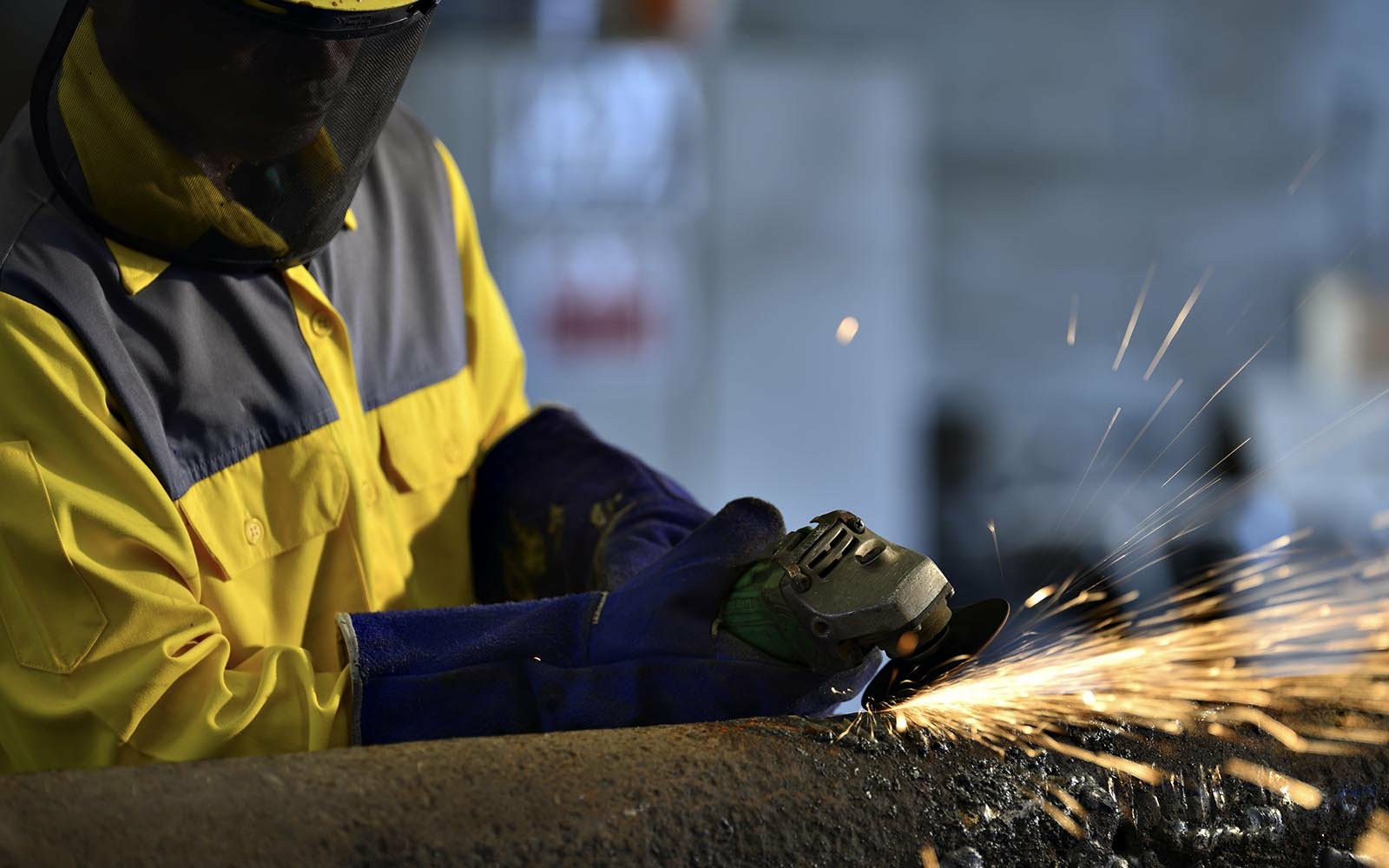Abrasive Wheels Risks: Key Workplace Hazards and Prevention Strategies for Irish Businesses
Abrasive wheels are an essential tool across various industries, including construction, manufacturing, and engineering. However, while they offer efficiency and precision, they also pose several risks that can lead to severe injuries if not handled correctly. This guide will delve into common hazards, the impact of improper usage, and the indispensable role of training and safety measures in mitigating these risks.
Understanding the Dangers of Abrasive Wheels
The operation of abrasive wheels is inherently risky due to the high-speed rotation and the materials involved. Understanding these risks is crucial for anyone who works in environments where abrasive tools are used.
- Wheel Breakage: One of the most common hazards is the potential for wheel breakage, which can result from excessive wear, improper mounting, or misuse. When a wheel shatters, it can send shrapnel flying at high speeds, posing significant injury risks.
- Improper Usage: Incorrect handling or operation of abrasive wheels can lead to accidents. Misalignment during setup or operating beyond the recommended speeds may increase the likelihood of accidents.
- Lack of Personal Protective Equipment (PPE): Not wearing appropriate PPE, such as goggles, gloves, and face shields, can greatly increase the risk of injuries, especially from flying debris and dust.
Common Causes of Injuries in Abrasive Wheel Operations
Understanding the root causes of injuries is essential for developing effective prevention strategies. Here are some common causes:
- Inadequate Training: Many workplace accidents stem from insufficient knowledge about how to use abrasive wheels safely. Without proper training, employees may not be aware of the correct operational protocols or safety precautions.
- Neglecting Equipment Maintenance: Regular inspections and maintenance are crucial for safe operations. Failing to maintain equipment can lead to malfunctions and potential hazards.
- Poor Work Environment: A cluttered or hazardous workspace can contribute to accidents. Ensuring work areas are clean and free of obstacles is an essential safety measure.
The Role of Proper Training in Minimizing Risks
Proper training is the cornerstone of workplace safety when using abrasive wheels. In Ireland, businesses can offer certified training courses to ensure that employees are well-versed in safety protocols. Here are some key components of effective training:
- Understanding Safety Regulations: Employees should be educated about Irish workplace safety regulations related to abrasive wheels. This knowledge can prepare them to work safely and ensure compliance with legal standards.
- Hands-On Training: Practical training that includes the proper mounting, operating speed, and maintenance of equipment significantly reduces the likelihood of accidents.
- Emergency Procedures: Training should include instructions on what to do in the event of an accident or equipment failure, emphasizing quick and effective responses.
Best Practices for Abrasive Wheel Safety
To further minimize risks associated with abrasive wheels, the following industry best practices should be implemented:
- Regular Inspections: Conduct routine checks on abrasive wheels and associated equipment to identify signs of wear or defects.
- Follow Manufacturer Guidelines: Always adhere to the specific guidelines provided by the manufacturer regarding operations, wheel types, and maintenance schedules.
- Use Appropriate PPE: Ensure that all workers wear the necessary protective gear, including goggles, safety gloves, and respirators where needed.
Case Studies: Real-World Consequences of Neglecting Safety
Several incidents across Ireland illustrate the critical need for rigorous safety training and adherence to protocols:
- A Dublin fabrication shop experienced an injury when an untrained employee operated a cutting wheel without appropriate PPE, resulting in severe eye damage.
- In Cork, a manufacturing facility faced significant fines after an employee was injured due to improper wheel mounting that led to breakage during operation.
Conclusion: Prioritize Safety to Protect Employees
Employers in Dublin, Cork, Galway, Limerick, Waterford, and other major cities across Ireland must prioritize the safety of their workforce when using abrasive wheels. Investing in certified abrasive wheels training not only enhances operational efficiency but also fosters a safer work environment. Don't wait for an accident to occur; ensure your employees are equipped with the knowledge and skills they need to work safely with abrasive wheels.
If you're looking to enroll in an Abrasive Wheels Course in Dublin, Cork, Galway, Limerick, or Waterford, contact us at [email protected] today to learn more about our training options and enhance workplace safety.



 349,500 Offered Certificates
349,500 Offered Certificates
 24/7 Online Training
24/7 Online Training
 Money Back Guarantee
Money Back Guarantee
 Fully Accredited Courses
Fully Accredited Courses
